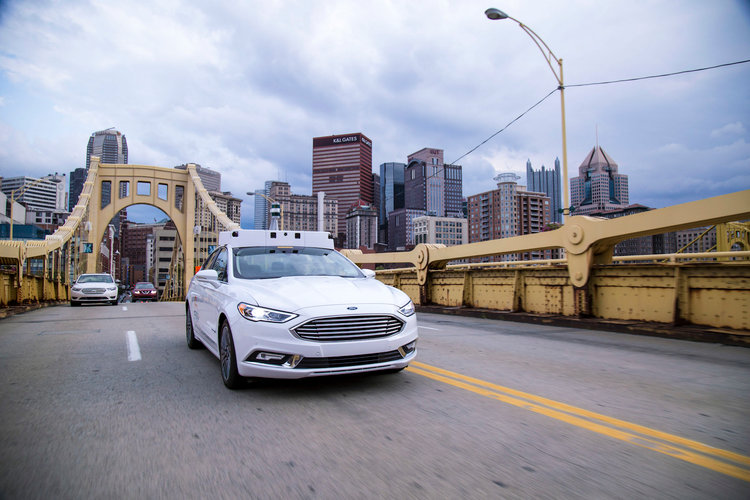This is an excerpt from a story delivered exclusively to Business Insider Intelligence Transportation & Logistics Briefing subscribers. To receive the full story plus other insights each morning, click here.
Ford and German automaker Volkswagen are reportedly close to finalizing a new joint venture to develop self-driving vehicles and technologies, according to The Wall Street Journal.

Ford
The deal will build off a separate agreement the firms announced earlier this year. VW will reportedly invest $1.7 billion in Argo.ai, which is Ford’s autonomous vehicle (AV) technology subsidiary. The investment will give both Ford and VW a 50% stake in Argo, effectively making it a joint venture. VW may also fold other parts of its business into the joint venture, including Audi’s self-driving tech development unit and Moia, VW’s mobility services segment.
The joint venture will focus on two areas: the joint development of self-driving tech, and the merging of production processes. When it was first reported the automakers were considering a partnership, we speculated that it’d be a high-level one focused on EV tech along with knowledge and data sharing. But the reported agreement will instead be AV-focused and also much deeper, honing in on two key areas:
- AV technologies: Developing autonomous driving tech is immensely expensive — VW and its subsidiaries had allocated over $50 billion to develop new vehicle technologies through 2023, a sizeable chunk of which was set aside for AVs. For its part, Ford said it’ll spend about $800 million annually through 2023 on AV software and hardware — about $4 billion in total. Within the joint venture, VW and Ford will co-develop software and hardware for AVs, helping to alleviate some of the cost burden.
- Manufacturing and production: The two automakers will reportedly share factories and collaborate on production processes, though it isn’t yet clear in what capacity. To this end, VW is planning a massive expansion of its Chattanooga, Tennessee facility. Sharing common facilities to mass produce new vehicles with a common drivetrain could help the companies scale up jointly developed AV tech in a short period of time.
For Ford, the agreement could help it overcome its later entry to the US self-driving space, which is currently planned for 2021. Ford has repeatedly emphasized that it’ll deploy AVs commercially in 2021, a couple years after the leaders of the US AV space, Waymo and GM.
Though its later entry will prevent it from securing some of the first-mover advantages enjoyed by earlier entrants — like Waymo’s reputation as an innovative brand, for instance — joining forces with VW could help it quickly scale up its AV project, potentially allowing it to reduce the gap between it and market leaders. For example, sharing AV testing data between the companies could fortify Argo’s underlying AV software algorithms, helping them handle a more diverse set of road conditions and geographies.
Interested in getting the full story? Here are two ways to get access:
1. Sign up for the Transportation & Logistics Briefing to get it delivered to your inbox 4x a week. >> Get Started
2. Subscribe to a Premium pass to Business Insider Intelligence and gain immediate access to the Transportation & Logistics Briefing, plus more than 250 other expertly researched reports. As an added bonus, you’ll also gain access to all future reports and daily newsletters to ensure you stay ahead of the curve and benefit personally and professionally. >> Learn More Now
Get the latest Ford stock price here.
